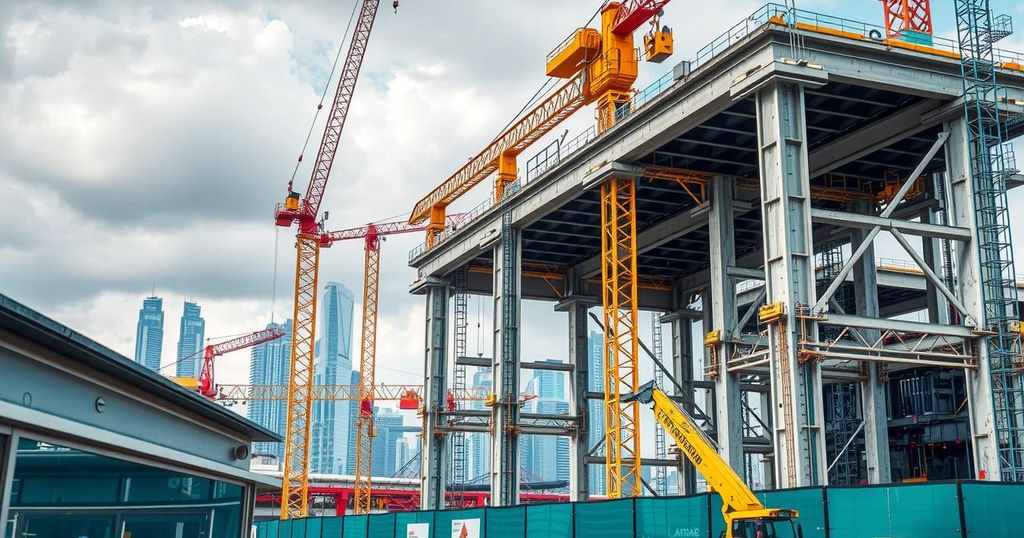The Minister of Steel Development, Prince Shuaibu Abubakar Audu, highlighted the National Steel Raw Materials Exploration Agency’s role in Nigeria’s goal of a $1 trillion economy by 2030. Focused on reducing reliance on steel imports, he announced partnerships for military hardware production and emphasized the importance of legislative frameworks for industry growth. The government aims to enhance steel production capacity significantly with foreign investments and set targets for substantial annual production.
Prince Shuaibu Abubakar Audu, Nigeria’s Minister of Steel Development, emphasized the pivotal role of the National Steel Raw Materials Exploration Agency (NSRMEA) in the federal government’s ambitious plan to elevate the economy to a $1 trillion valuation by 2030. During a recent visit to NSRMEA in Kaduna, Audu asserted President Bola Tinubu’s commitment to rehabilitating the Ajaokuta Steel Company.
Highlighting the economic impact, Audu noted that Nigeria currently imports approximately $4 billion in steel each year. He underscored the necessity for import substitution to alleviate pressure on the nation’s foreign exchange, stating that maximizing the exploration component of the steel industry is essential for achieving optimal production levels.
The Minister praised NSRMEA for its notable performance, recognizing it as one of the leading agencies under his ministry based on previous evaluations. Furthermore, he revealed upcoming collaborations with the Ministry of Defence and the Defence Industries Corporation of Nigeria (DICON) to facilitate military hardware production, as part of a larger strategy to establish a military-industrial complex in Nigeria.
Audu also mentioned the drafting of a Memorandum of Understanding (MoU) with DICON, pending presidential approval. Additionally, a summit is being planned to engage steel sector stakeholders in developing a comprehensive growth strategy for the industry.
On legislative progress, the Metrological Industry Bill has successfully passed its second reading in the House of Representatives. Audu indicated that the bill would create a regulatory framework promoting governance and development in both private and corporate steel sectors once enacted.
Notably, the federal government is working to attract foreign direct investments (FDI) to enhance Nigeria’s steel sector. Commitment made during President Tinubu’s recent visit to New Delhi includes producing five million metric tonnes of steel in Nigeria. Additionally, a Chinese firm is set to invest $300 million in a new steel plant located in Ogun State, which is expected to bolster the country’s steel production capabilities.
Looking forward, Audu expressed confidence that ongoing reforms will revitalize the steel industry. He articulated a target production goal of 10 million metric tonnes of steel annually, asserting that with successful implementation of their plans over the next five years, Nigeria will substantially reduce its reliance on steel imports.
In conclusion, Prince Shuaibu Abubakar Audu’s statements underscore the critical importance of the steel industry to Nigeria’s economic aspirations. The government is actively pursuing partnerships and legislative frameworks, while aiming for significant reduction in steel imports and development of local production capacity. With planned investments and a clear production target, there is a strong commitment to rejuvenating Nigeria’s steel sector which is vital for long-term economic growth.
Original Source: www.thisdaylive.com




